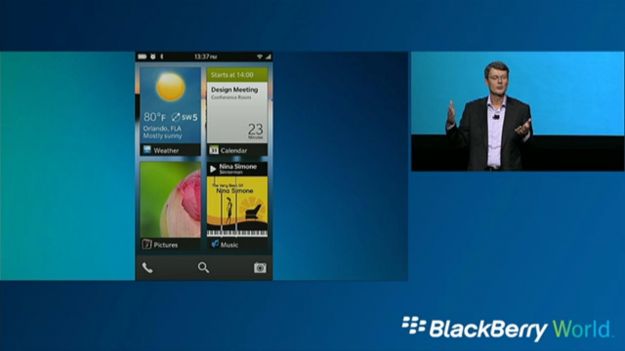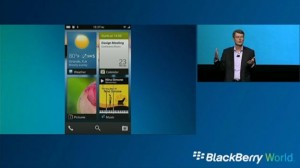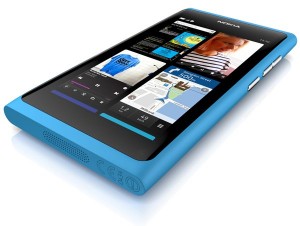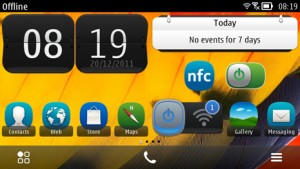As of the 9th of August, 2012, veteran smartphone manufacturer RIM has come forward and admitted that it is unable to survive in a world dominated by companies “who crank out 60 handsets a year”.
RIM CEO Thorsten Heins told The Telegraph that allowing other original equipment manufacturers (OEMs) to create devices which use the BlackBerry operating system may be the only way that the company is able to stay afloat. As many know already, RIM has always been resistant in allowing its OS to be used on non-BlackBerry hardware. RIM may be able to see more profits by licensing outside hardware companies such as Samsung or HTC to use the OS. The problem would be that many of the larger phone makers already pay hefty fees to Microsoft for licenses to Windows Phone 7/8, and OEMs also pay Microsoft for patents to use Android, along with Google charging nothing for the licensing fee, they may not see the attraction in paying a hefty price for a BB license.
There was some talk of Samsung’s interest in purchasing RIM which actually ran up their share price quite a lot. Samsung ended up having to release a statement clarifying that it had zero interest in the matter. I don’t know about you readers but I can easily come up with a few names that Samsung may have given to their first BB10 device: Samsung BlackBerry X (with X being 10), Samsung BlackBerry S (SII, SIII etc), Samsung Galaxy BB, The BlackBerry Note; you get the picture.
IBM has expressed interest in RIM’s enterprise aspect which includes RIM’s famed secure push email. IBM is the largest provider of all things which have the words “service”, “computer” and “enterprise” in its description. Although this does not foreshadow anything like a “ThinkPhone” or “ThinkBerry”, it does give RIM a slight leg-up in some desperate restructuring. However, if the majority of profits do come from the customer, then flogging what’s under the hood to a behind the scenes company will do nothing to improve their slowing product. First things first, they really need to get BB10 out of door faster.
Simply put, RIM is losing its grasp on the smartphone market as its handsets simply do not inspire or excite anymore for many reasons:
1 – Coverage. Unlike Apple who loves the spotlight and Microsoft who look for every opportunity to attempt to show that they are still the best (to an extent, successfully might I add, with Windows Phone 8), BlackBerry has had less coverage at its Keynote Summits and Conferences. There is no build up and therefore, no one queues outside the Carphone Warehouse at 4am to get the newest BlackBerry.
2 – Target. Yes we all know that BlackBerrys are phones for the business type but they are still smartphones and they do many other things; there are even Twitter and Facebook apps for BB OS. The problem is that RIM has never really pushed their devices for anything other the enterprise market.
3 – Same-ol’ same-ol’. RIM has gone the safe route of making almost every BlackBerry look the same for about a decade. There have been a few breakaways such as with the abomination that was the Storm series (BlackBerry’s revolutionary phone with both touch and press in the same screen), and the Torch series that was decent but no game changer.
The most loyal of BlackBerry users all claim that they cannot live without BlackBerry Messenger (BBM), RIM’s dedicated chat app that allows free inter-BlackBerry communication for free anywhere in the world as long as there is an Internet connection. Apple caught onto this and followed suit by implementing iMessage into iOS as well as Mac OS X. No doubt Windows Phone 8 will have something similar such as Windows/MSN messenger.
The smartphone nowadays is the portal for all things social. The smartphone also carries an amount of street cred amongst your peers and BlackBerry is losing that due to some of the reasons mentioned above. Products like newly released iPhones, Samsungs, HTCs and Nokia’s latest offerings such as the N9, PureView 808 and Lumia line have always been excitedly received whereas a new BlackBerry model would be lucky to get anything more than a “That’s cool”. It also doesn’t make sense having a smartphone where one of its features which allows you to save money/allowance is incompatible with the phones of the people you communicate with the most.
An anecdotal finish – I hung out with a local cricket club one afternoon taking pictures with my new DSLR and during their match, I had the responsibility of the valuables bag, to which I performed a little brand-count. Of the 12 players, 6 owned an iPhone of some sort, 3 owned an Android device, 2 dumbphones and only a single BlackBerry. I brought this up after the match and the owner told me that he had been a loyal user of BlackBerry for many years but began to see the attraction of other phones as well as BBM losing its usefulness and when the time came for an upgrade, RIM will have lost another user.
RIM needs to get its feet under the ground and push its products harder. With behind the scenes backing from IBM, as well as an OEM or two, it can be back on its feet in no time and proving to the world that the market stoll needn’t only contain one type of fruit. If RIM wishes to still keep its enterprise image, I would honestly look forward to a BlackBerry device made by Dell or HP…think about it, The BlackBerry XPS or The BlackBerry Envy. Maybe.





